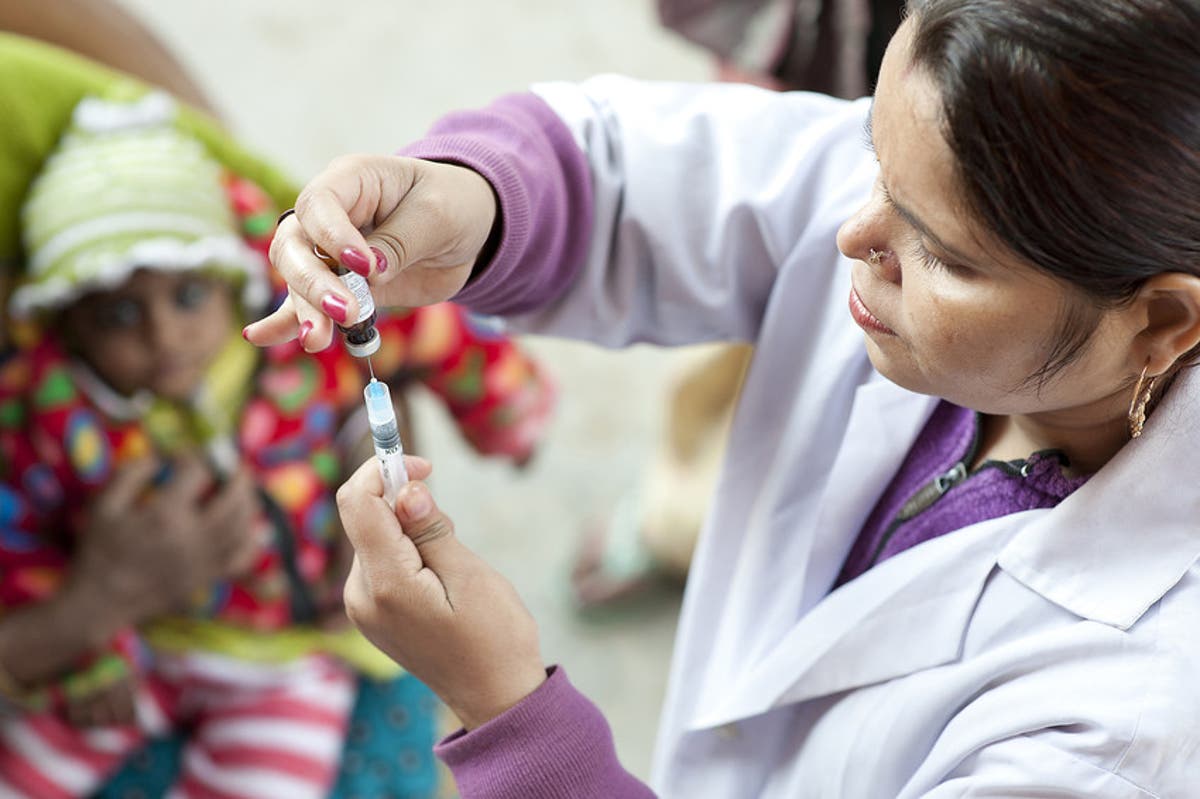European countries have reported a surge in whooping coughc ases in first quarter of 2024, with 10 times as many identified as in each of the previous two years.
Nearly 60,000 cases were reported by European Union and European Economic Area countries over the period, the European Centre for Disease Prevention and Control said on Wednesday, with 11 deaths in infants and eight among older adults.
In the UK cases of whooping cough could reach a 40-year high in 2024, experts have warned amid a rapid rise in cases.
Whooping cough, or pertussis, is a bacterial infection of the lungs and airways, and is endemic in Europe. It can be very dangerous for young babies or older people.
Bigger whooping cough epidemics are expected every 3-5 years even in countries with high vaccination rates, the ECDC said, although a slight dip in immunisation during the COVID-19 pandemic may have been a factor in the rise. Circulation of whooping cough was also very low during the pandemic and its related restrictions on movement, making the rise seem larger.
NHS whooping cough symptoms
The first signs of whooping cough are similar to a cold, such as a runny nose and sore throat (a high temperature is uncommon).
After about a week, you or your child:
- will get coughing bouts that last for a few minutes and are worse at night
- may make a “whoop” sound – a gasp for breath between coughs (young babies and some adults may not “whoop”)
- may have difficulty breathing after a coughing bout and may turn blue or grey (young infants)
- may bring up a thick mucus, which can make you vomit
- may become very red in the face (more common in adults)
The cough may last for several weeks or months.
The numbers are still historically high, though. In the first three months of 2024, there have already been as many cases as there were in an average year between 2012 and 2019.
The agency noted that much of the population had missed out on natural boosting of their immunity to whooping cough because they had not been exposed to it during the pandemic.
Babies under six months are at particular risk from the infection.
Vaccines
“It’s essential to remember the lives at stake, especially our little ones. Vaccines against pertussis have proven to be safe and effective,” said ECDC Director Andrea Ammon.
Most European countries routinely immunise children against pertussis and many also vaccinate pregnant women to protect their babies.
The ECDC said some countries may want to consider giving boosters to older children and adults too, as immunity can wane.
Paul Hunter, professor in medicine at the University of East Anglia (UEA), said: “For most adults the whooping cough is not life threatening, though can be very unpleasant.
“This is a chronic repeated bout of coughing which can be so bad that people feel it a struggle to breathe in again.
“It used to be much more common in the last century up until the vaccine was introduced.
“However, this current year looks like we may see more cases than we have seen in any of the last 40 years.”
Prof Hunter said that a number of factors could be behind the rise in cases, including: a drop in vaccine uptake; reduced “population immunity” due to a fall in cases linked to social distancing measures during the pandemic; and a “scare over vaccines” in the early 2000s which led to a group of people aged around 21 who did not complete their vaccination.
He added: “The infection can affect anyone who is not vaccinated and even some that are.
“However, the main risk of death or severe long-term complications is seen in young children, especially those under three months old.
“It is this age group that are most at risk of death and developing longer-term problems such as brain damage.
“The problem is that this age group is too young for the vaccine in most circumstances.
“That is why we offer vaccine to pregnant women. Not to protect them but to protect their babies during the riskiest first months of life.
“Vaccine uptake in pregnant women has been falling quite markedly in recent years.”
